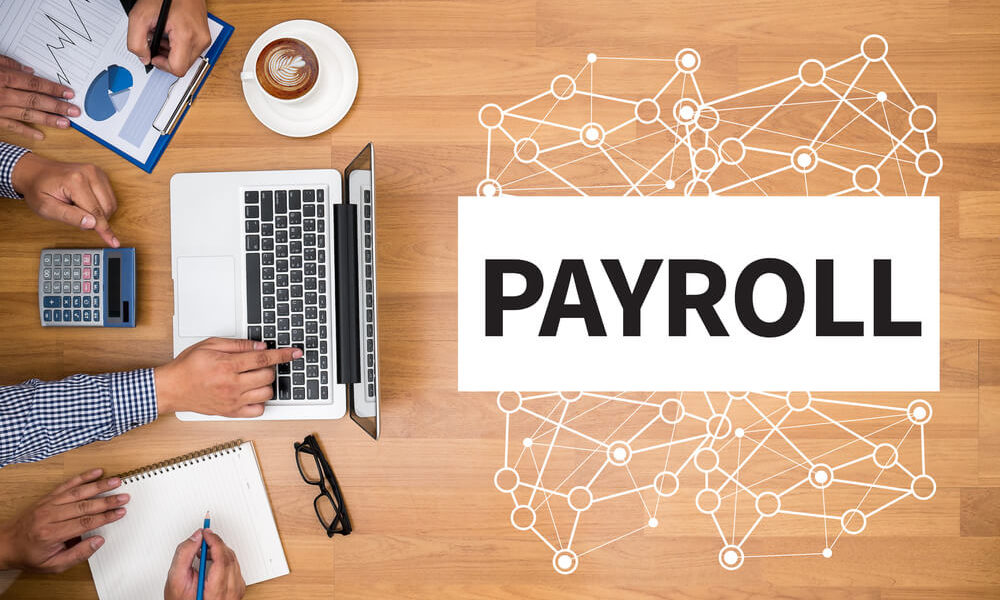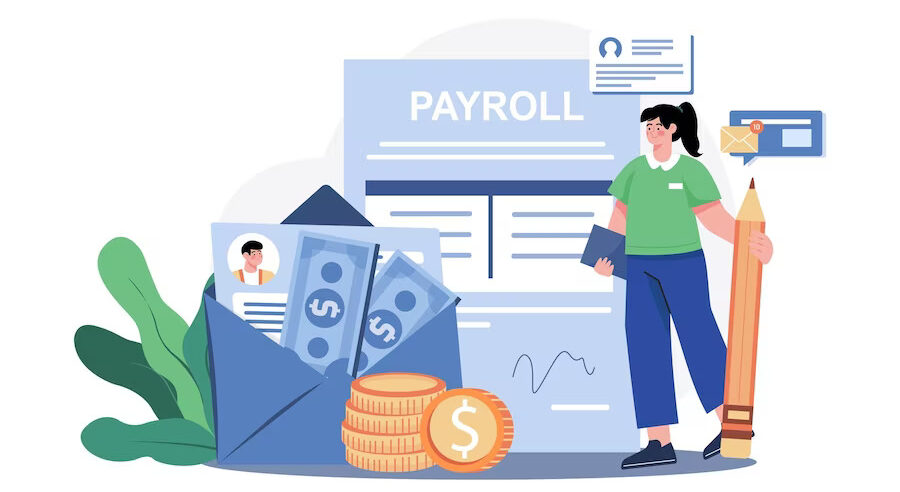How Can HR Ease the Process of Payroll Through Outsourcing
- 1 An Overview of Payroll Outsourcing: Understanding the Basics
- 1.1 Navigating Payroll Outsourcing Across Borders: Simplifying the Outsourcing Process
- 1.2 Maximizing Efficiency through Payroll Outsourcing: Key Factors to Consider
- 2 The Power of Payroll Outsourcing: 10 Ways HR Can Simplify the Process
- 2.1 Streamlining Data Management
- 2.2 Improving Compliance
- 2.3 Reducing Administrative Burden
- 2.4 Increasing Accuracy
- 2.5 Automating Processes
- 2.6 Providing Access to Employee Self-Service
- 2.7 Enhancing Reporting and Analytics
- 2.8 Improving Time-to-Pay
- 2.9 Reducing Costs
- 2.10 Providing Scalability
- 2.11 Acquiring Comprehensive Payroll Visibility With Outsourcing
- 2.12 Shifting Focus to Priority Projects
- 2.13 The Bottom Line
Human Resources (HR) plays a critical role in managing a company’s workforce, including the timely and accurate payment of employee salaries. However, the payroll process can be time-consuming and complex, requiring HR to handle a vast amount of data, calculate taxes, and ensure compliance with labor laws. Outsourcing payroll can help HR simplify this process by transferring payroll responsibilities to a third-party provider. By leveraging the expertise and technology of a payroll provider, HR can focus on strategic initiatives and improve the overall employee experience.
If you outsource your payroll processing to a third party, they will handle all HR paperwork and ensure your workers are paid on time. Using a payroll outsourcing firm can streamline your payroll processes. They help companies automate their payroll, maintain compliance, and provide timely, correct paychecks to workers, all of which boost morale and productivity. In this article, we will explore how HR can ease the process of payroll through outsourcing.
An Overview of Payroll Outsourcing: Understanding the Basics
Payroll outsourcing is transferring some or all of the responsibilities associated with processing employee salaries from an organization’s internal HR department to a third-party service provider. The service provider, known as a payroll outsourcing company, manages all aspects of the payroll process, including the calculation of salaries, taxes, and deductions and the distribution of paychecks or direct deposits to employees. The goal of payroll outsourcing is to relieve HR departments of the administrative burden and provide more accurate, timely, and compliant payroll processing.
Navigating Payroll Outsourcing Across Borders: Simplifying the Outsourcing Process
Outsourcing payroll to different countries and companies can be a straightforward and efficient process, mainly when working with a reputable payroll service provider. Before conducting payroll outsourcing, it’s essential to understand your organization’s specific needs and requirements. This can include the number of employees, payroll frequency, and the type of compensation and benefits offered. Conduct research to identify reputable service providers that provide services in the countries where you operate. In addition, companies should regularly evaluate the performance of their payroll service provider and consider making changes if necessary.
Maximizing Efficiency through Payroll Outsourcing: Key Factors to Consider
Here are some factors to consider when deciding whether a payroll outsourcing service is a good fit for your company:
- What are the current challenges or inefficiencies with your current payroll process?
- What is the cost of in-house payroll administration versus outsourcing?
- Are you considering expanding your company to new regions?
- If laws vary by country or state, does your company have the resources to adapt?
- What is the level of expertise and compliance required for payroll administration, and does your organization have the resources to handle it in-house?
- What data security measures do you require, and can an outsourced solution meet them?
- Does an outsourced solution offer the necessary integration with current systems?
- What is the scalability of the outsourced solution, and can it accommodate changes in your organization’s size, structure, and needs over time?
By evaluating these questions, you can better understand the benefits and drawbacks of outsourcing payroll and make an informed decision for your organization.
The Power of Payroll Outsourcing: 10 Ways HR Can Simplify the Process
Streamlining Data Management
Outsourcing payroll can help HR simplify employee data management, including personal information, tax forms, and payroll records. The payroll service provider can handle the collection, storage, and maintenance of employee data, reducing the risk of errors and improving the accuracy of payroll processing. Additionally, modern software technology allows quick detection of fraud or mismanagement.
Improving Compliance
It might cost you dearly in terms of money and credibility if you don’t follow the laws when paying your employees. Any successful business must make compliance a top priority. Legislative compliance is an integral part of running a business in any country or industry, and payroll processing service providers have teams of specialists that are well-versed in and constantly improving their knowledge of these requirements. Payroll outsourcing companies are experts in labor laws and tax regulations and can ensure that an organization’s payroll practices are compliant. This can reduce the risk of penalties and legal action and improve overall compliance with labor laws.
Reducing Administrative Burden
The administrative load is connected to the difficulty of keeping payments, employee records, and other crucial information updated and readily available. Reducing administrative burden refers to decreasing the time, effort, and resources required to complete administrative tasks, such as payroll processing. Payroll outsourcing allows human resources to devote more time and energy to critical tasks.
Increasing Accuracy
Accuracy is a critical factor in payroll management, as mistakes in payroll processing can result in financial losses, legal consequences, and damage to employee morale. HR can ease the payroll process through outsourcing by leveraging technology and expertise to increase accuracy and reduce the risk of errors. This can lower the likelihood of mistakes, such as miscalculations, missed deadlines, and incorrect payments, and improve overall reliability.
Automating Processes
Many payroll service providers use advanced technology to automate the payroll process, reducing the need for manual data entry and increasing the speed and efficiency of payroll processing. Payroll companies use different payroll software that integrates with other HR systems, such as time and attendance, benefits administration, and tax filing. This integration can provide real-time updates and reduce manual data entry, saving time and reducing the risk of errors.
Providing Access to Employee Self-Service
Providing access to employee self-service is an essential aspect of payroll management that can be streamlined through outsourcing. Self-service portals can give employees easy access to their payroll information, such as pay stubs, tax forms, and benefits. Additionally, employees can make changes to their personal information, such as updating their contact information or making changes to their benefits elections, reducing the workload for HR. This can reduce the workload on HR and improve overall transparency and communication.
Enhancing Reporting and Analytics
Payroll outsourcing companies can provide HR with detailed reports and analytics on payroll data, including labor costs, taxes, and deductions. This can help HR better understand the organization’s payroll practices and make more informed decisions. The HR department can also spot negative trends and report them to management for action due to sophisticated analytics and reporting.
Improving Time-to-Pay
By outsourcing payroll, HR can reduce the time-to-pay for employees, ensuring that salaries are paid accurately and on time. This can improve employee satisfaction and reduce the risk of disputes or misunderstandings. Payroll service providers have specialized knowledge of payroll regulations and compliance, enabling them to handle complex tasks and process payments quickly.
Reducing Costs
The time and money required to handle payroll in-house are substantial. Spending on payroll-related tasks like managing wages and benefits, delivering paychecks, compiling financial statements, and calculating and paying payroll taxes can add up. Outsourcing these tasks is one way to get a grip on the full scope of these expenses. By bringing in an outside company, your business can avoid the expense of handling payroll in-house. Outsourcing payroll can reduce the overall cost of payroll processing by leveraging a payroll service provider’s economies of scale and expertise. This can save organizations money on salaries, benefits, and technology costs associated with managing payroll in-house.
Providing Scalability
Payroll outsourcing companies can accommodate the needs of organizations as they grow, ensuring that payroll processing can scale up or down as needed. This can improve the overall efficiency and effectiveness of payroll processing, regardless of the organization’s size. Since outsourcing can adapt to sudden expansions or reductions, it may help you keep your administrative procedures and security controls in place even while your business changes.
Acquiring Comprehensive Payroll Visibility With Outsourcing
Many companies recognize the need to gain a more comprehensive insight into their operations, yet often lack complete visibility into their overseas payroll processes. By outsourcing payroll, you can consolidate your team, systems, and information for more efficient reporting across all of your company’s geographic locations. Instead of piecing together data from several systems in different offices, businesses can obtain a bird’s eye perspective of payroll using dashboard reporting. Access to payroll data for all regions is beneficial for growing or reorganizing companies, as it allows for more informed decision-making based on accurate information.
Shifting Focus to Priority Projects
When a business is through transition or expansion, the team’s workload can increase, necessitating the addition of personnel and resources. This is especially true for multinational corporations that must deal with the nuances of international payroll. Having a payroll outsourcing staff that is well-trained and knowledgeable about payroll can help alleviate the burden on internal teams and better respond to employees’ recurring questions about their pay and benefits. If your company outsources payroll, you can put your in-house payroll experts to better use in other departments.
The Bottom Line
Outsourcing payroll can significantly ease the HR workload and benefit an organization. However, it’s essential to carefully evaluate potential payroll providers and consider factors such as automation, integration, reporting, compliance, customer support, and scalability to ensure a successful outsourcing process. By considering these key factors and finding the right payroll provider, HR can ease the payroll process and ensure the organization’s success.



















